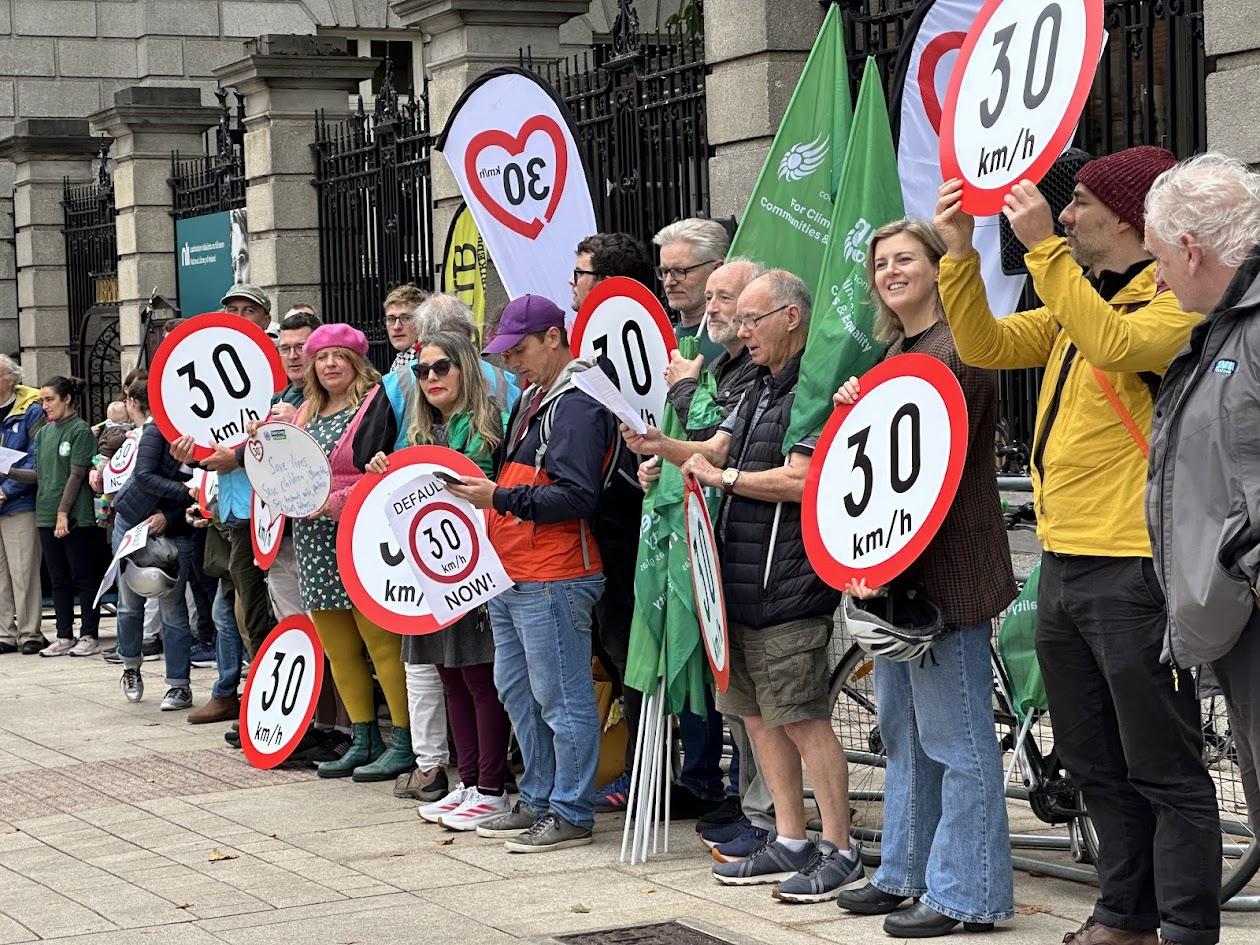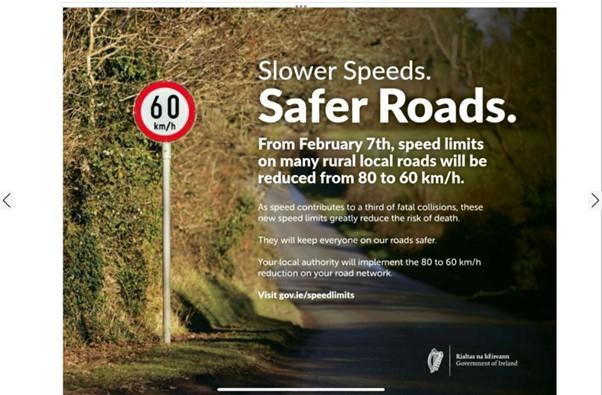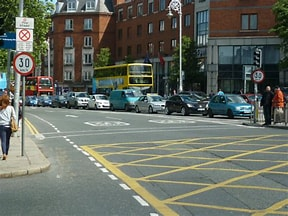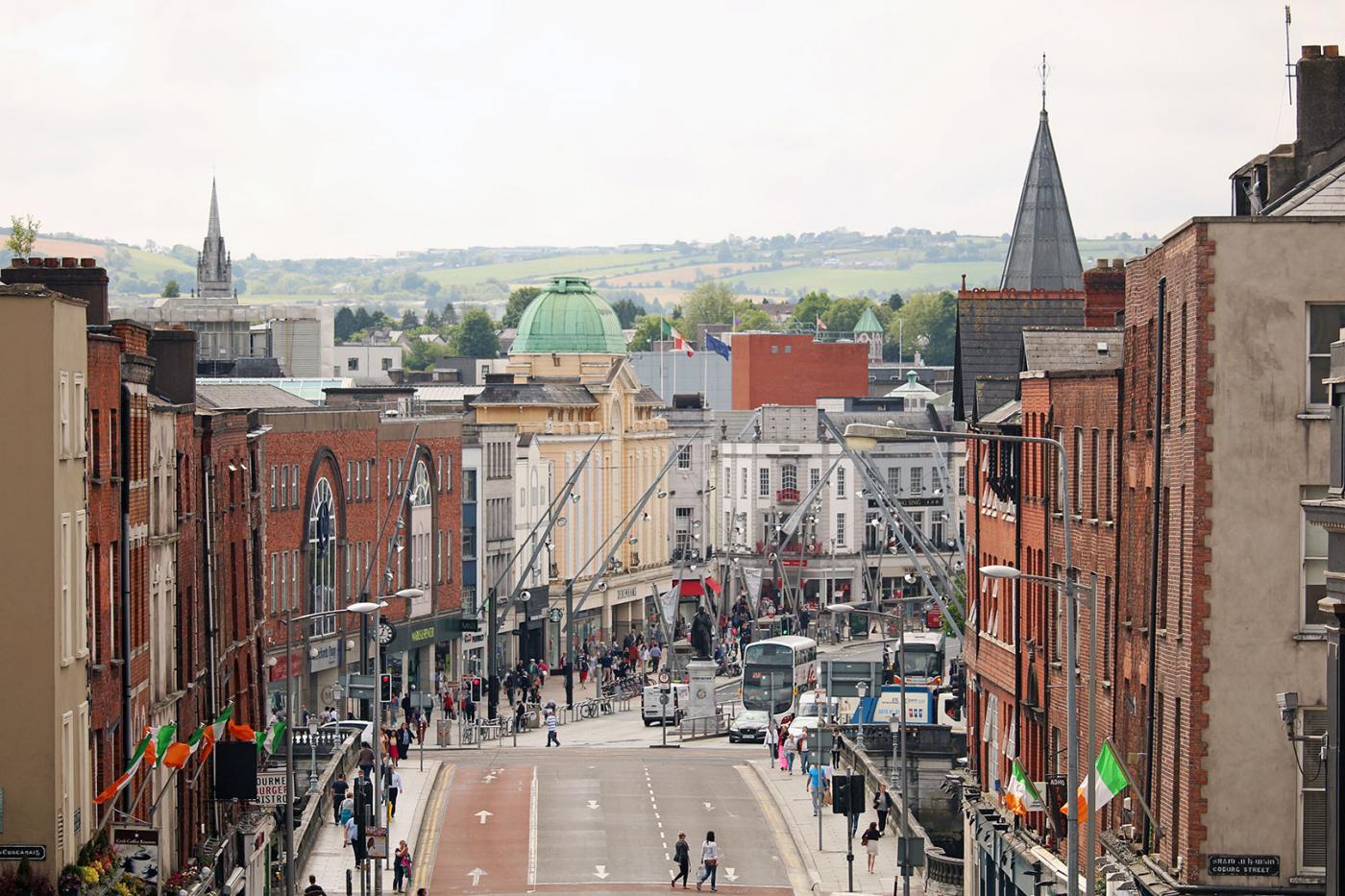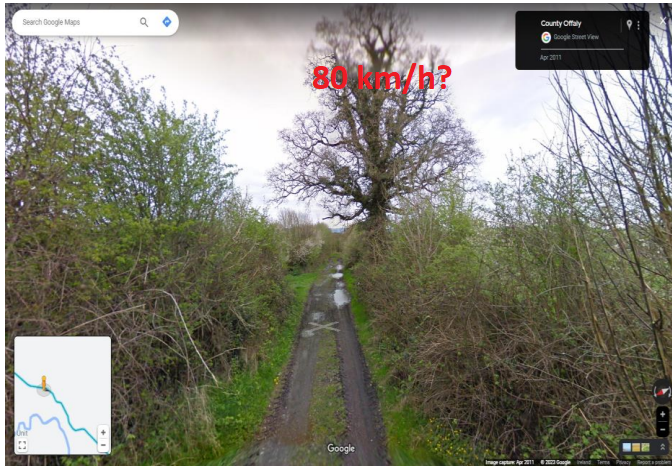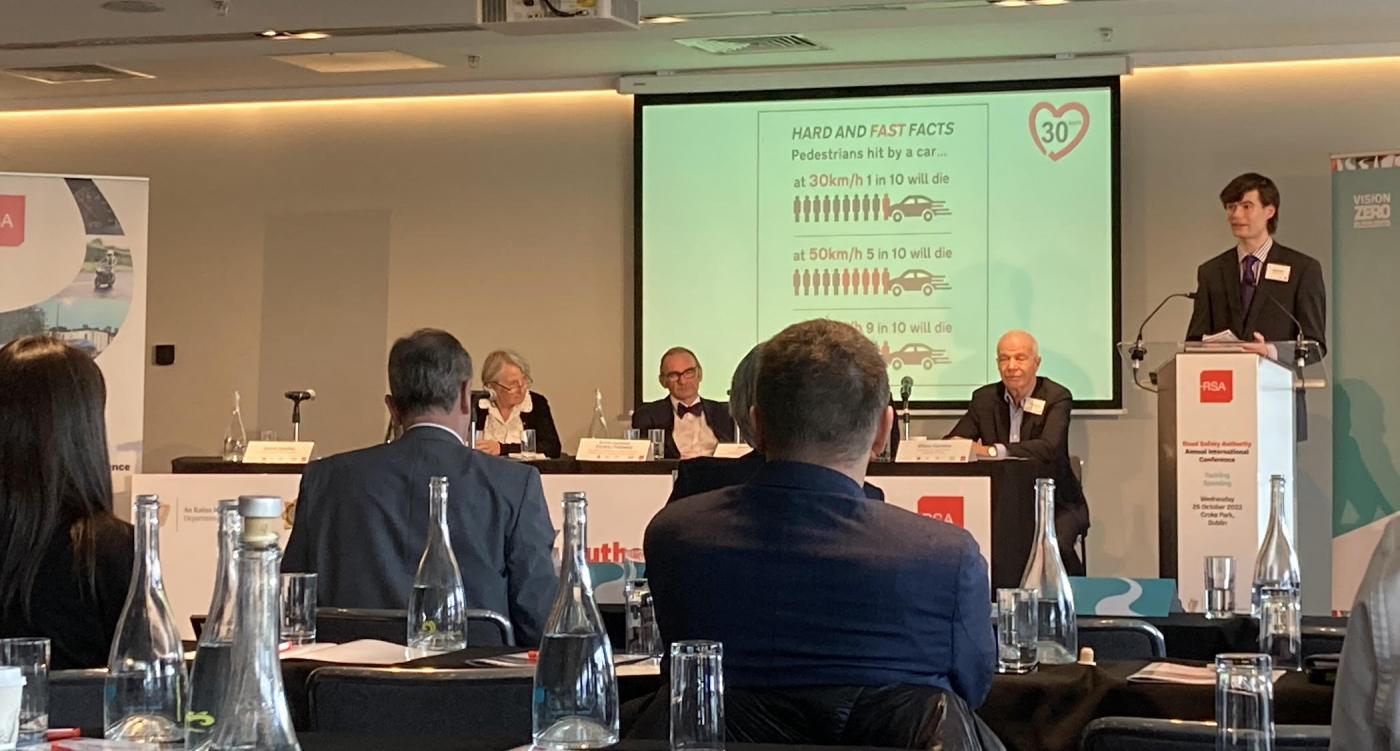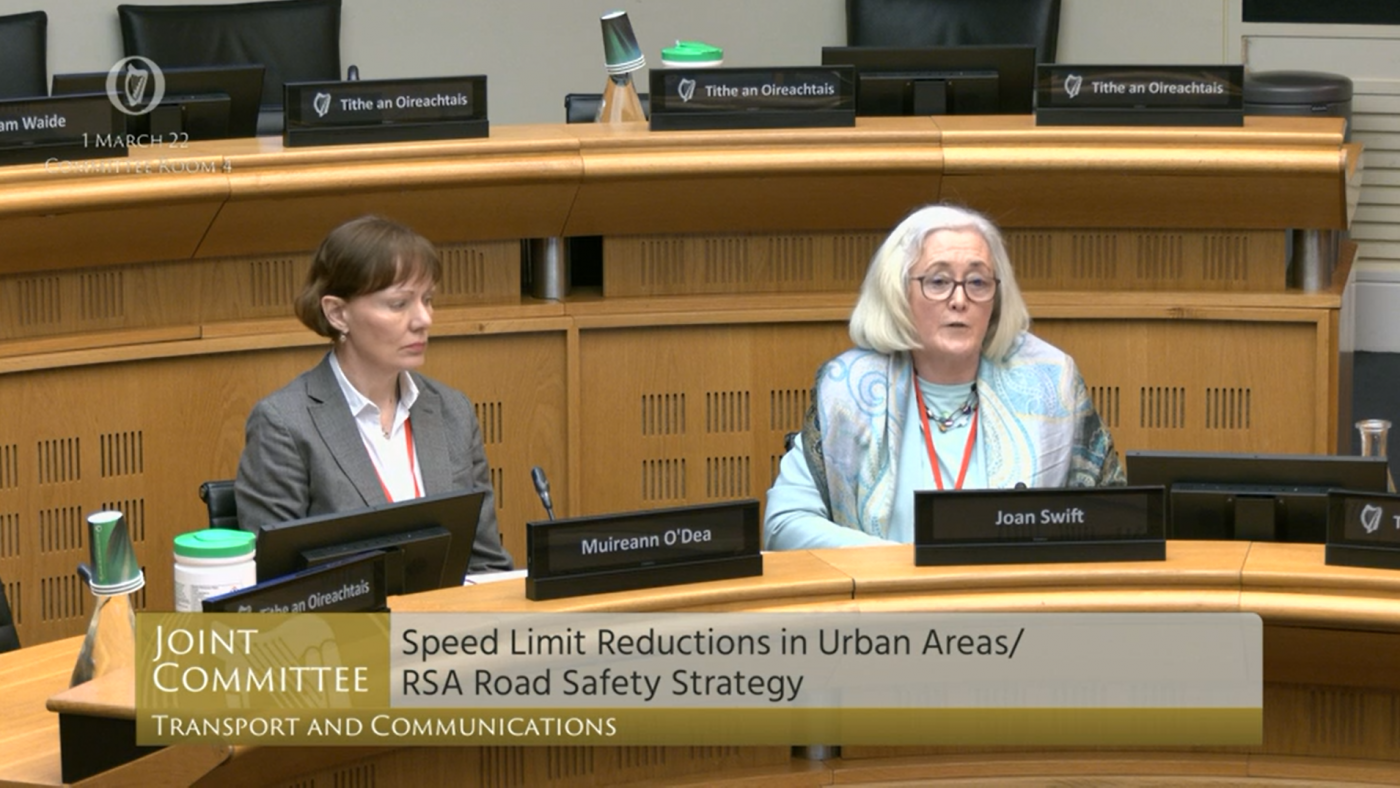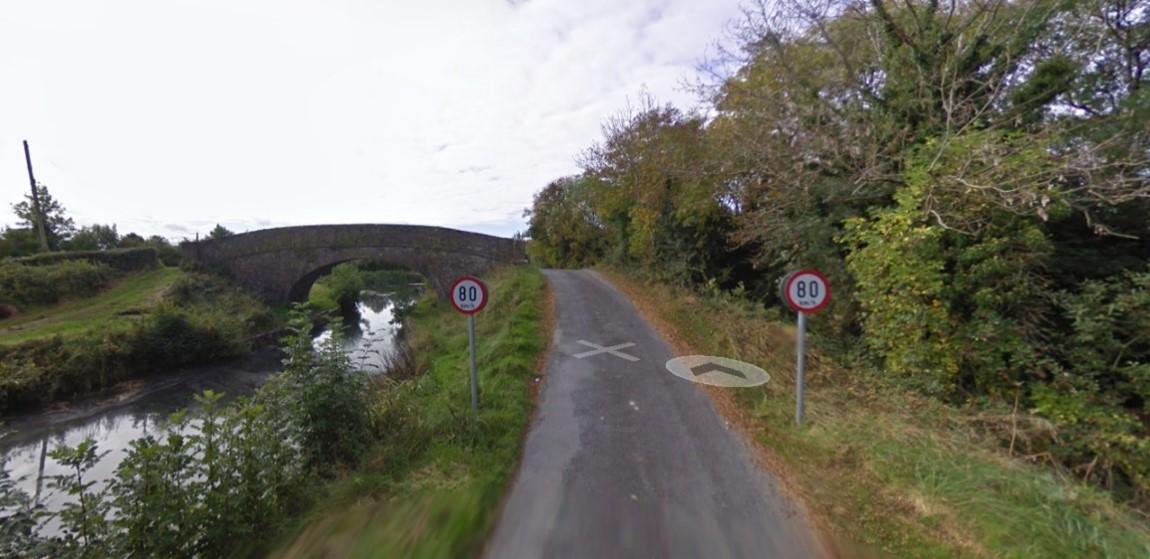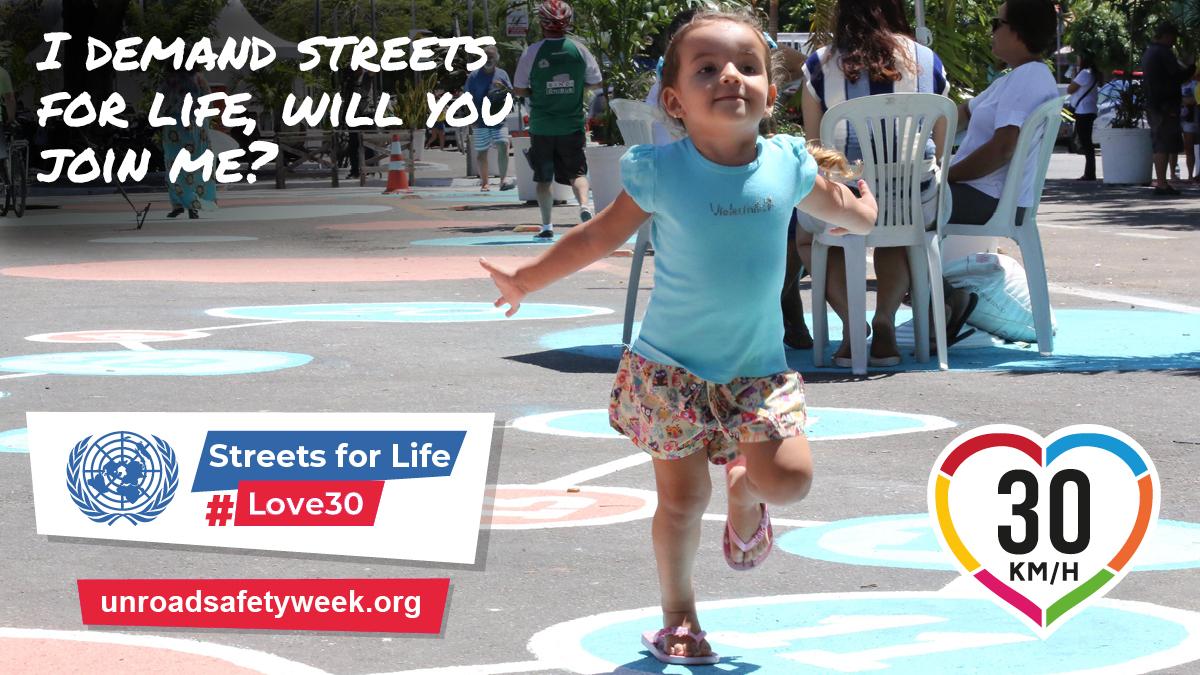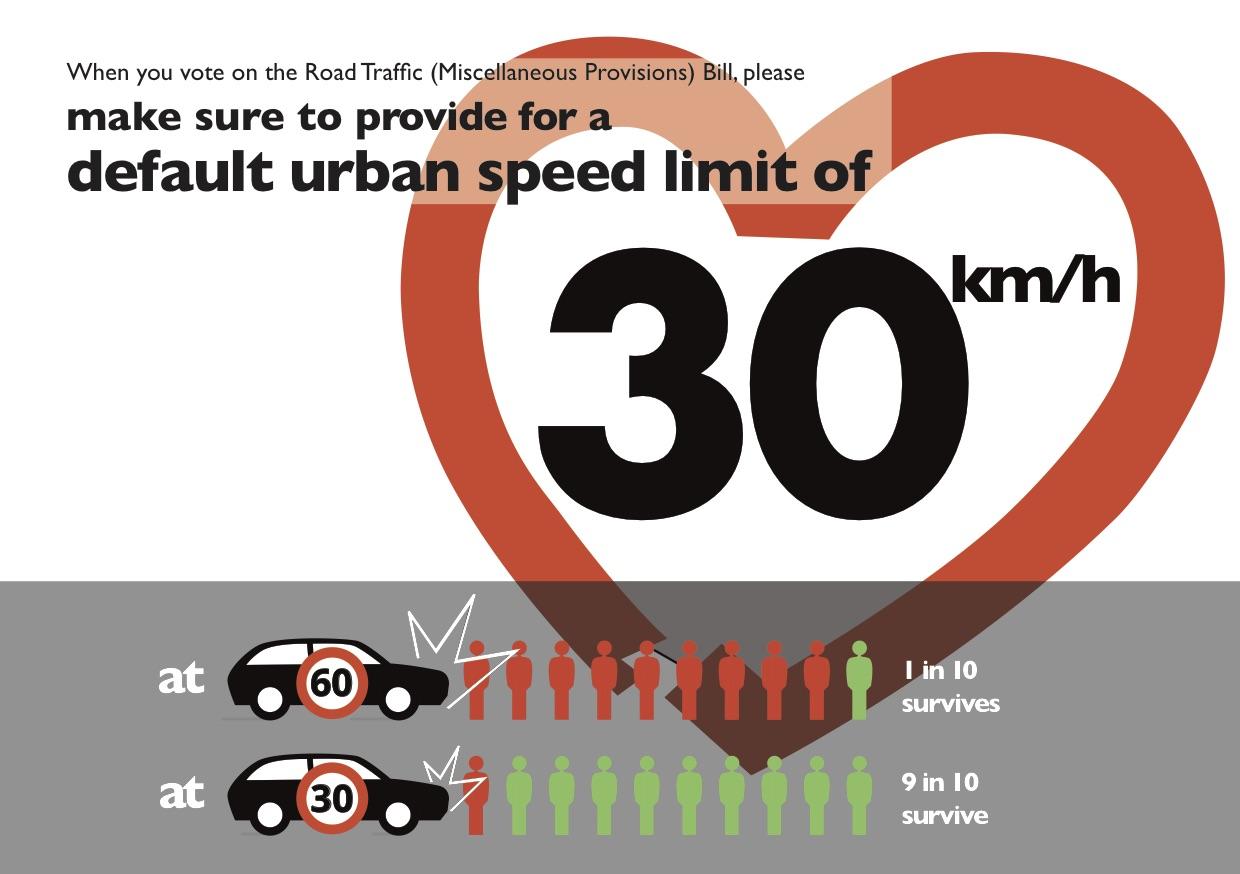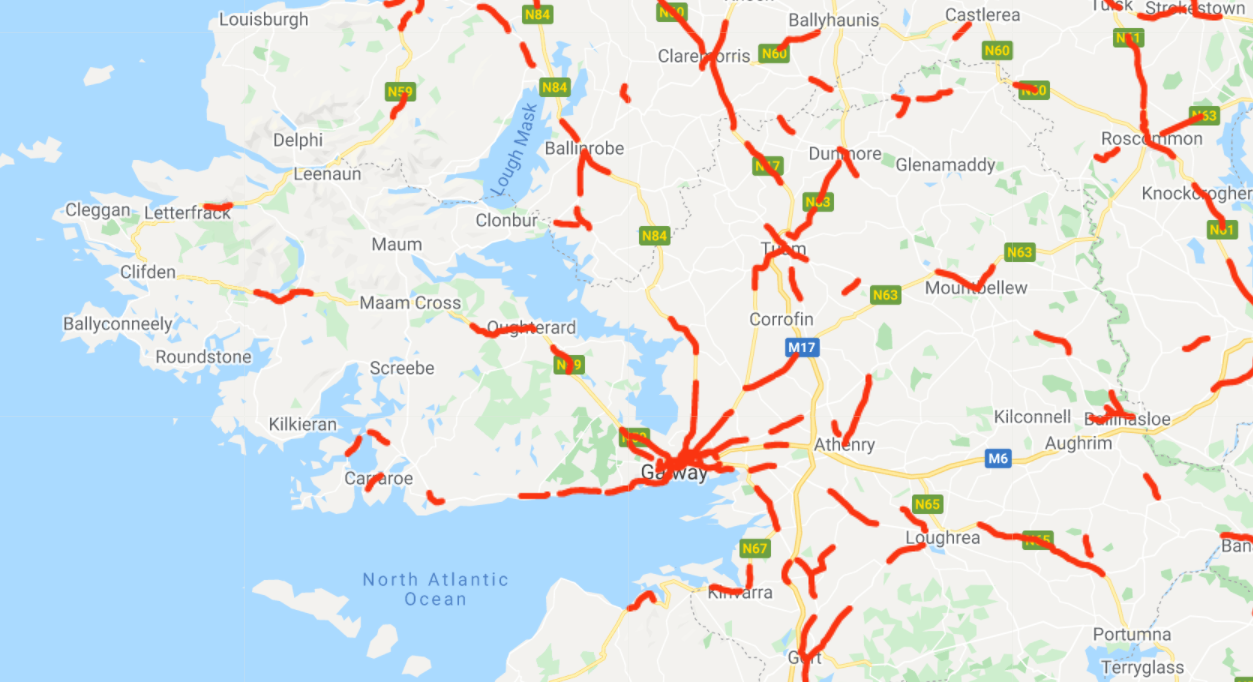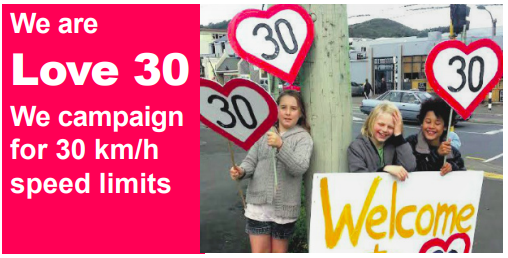
Love 30 and the Dublin Commuter Coalition issued the following press release on 19 October 2025.
The Love 30 Campaign for Safer Speed Limits, the Dublin Commuter Coalition, the Irish Cycling Campaign and other road safety campaigners are calling on the Minister for Transport, Darragh O’Brien to issue a commencement order without delay for the default urban speed limit of 30km/h as defined in the Road Traffic Act 2024. By issuing a commencement order the Minister would require local authorities to apply a default 30km/h to the 85 currently defined built-up areas (defined in the Local Government Act 2001). This is a straightforward process for local authorities and would mean that 85 cities and towns would get the immediate benefits of safer 30km/h speed limits.
We welcome the publication this week of the new Guidelines for Setting and Managing Speed Limits in Ireland. However, we are utterly disappointed that Minister O’Brien has directed local authorities to introduce 30km/h speed limits in built up areas operational by 31 March 2027 through the use of ‘special speed limit bye-laws’. This approach is slow and cumbersome, liable to local political interference, and will require local authorities to define urban areas and assess each road within the urban areas to determine if a 30km/h speed limit should be applied.
The road by road, street by street assessment required by the special speed limit bye law process is the opposite of the default speed limit concept as enacted in legislation as recently as last year. It risks becoming a piecemeal process with inconsistent application across local authority areas, thus trivialising rather than reinforcing the case for safer speeds.
Mairéad Forsythe, a spokesperson for Love 30 said “2027 is too late. The Minister is turning the original concept of default speed limits on its head. Rather than evaluating which roads should be exempted from the safer speed limit he is asking councils to assess which should be included. A process that took 14 months in Wales will have taken 35 months at least in Ireland”
The primary stated aim of the Government's Road Safety Strategy 2021 - 2030 was to reduce the number of deaths and serious injuries on Irish roads by 50% over the next 10 years. In 2025, after 4 years €3.8 billion investment in road safety, deaths and serious injuries are higher than in 2021.
Gary Marshall, spokesperson for the Dublin Commuter Coalition said “This trend is continuing in 2025 and road deaths for pedestrians & cyclists are already higher this year than at the same point in 2024. An analysis of road deaths by category has shown that while the total number of deaths on our roads has shown a decline in the last 20 years, deaths among vulnerable road users has increased as a proportion of total road deaths from approximately 21% in 2015 to 35% in 2025 to date.”
At a recent presentation to members of the Oireachtas, Muireann O’ Dea, co-founder of Love 30 said “Wales is an example of how a safer urban speed limit can be implemented nationally in a short space of time. Wales passed legislation setting a default speed limit of 20 mph (32 km/h) in July 2022 and fully implemented this across the whole country 14 months later (in September 2023). One year later they found significant drops in casualties and fatal injuries and the summer of 2024 was the safest since records began, including during the pandemic. “
The benefits of the safer urban speed limits in Wales include:
- A 28% reduction in casualties and fatalities, with associated cost savings
- Cheaper car insurance if you live in a 20 mph zone (as vehicle damage claims in Wales fell by 20%)
In Spain a 30km/h speed limit was introduced on all single-lane streets in September 2020. Since then, they have seen a 20% reduction in urban road deaths, and fatalities reduced by 34% for cyclists, 31% for the elderly, and 24% for pedestrians.
Campaign groups recognise that the definition of built-up areas needs to be revised to better reflect the reality that quite a few large urban areas were not towns under the Local Government Act 2001, and many towns have expanded beyond the built-up area limits. However this should not delay the implementation of a default 30km/h in the areas that fall within the current definition of built-up area, and special speed limits can be used for built-up areas outside of these.
We call on Minister O’Brien to immediately institute a Commencement Order for a Default 30km/h speed limit in the currently defined 85 built up areas in order to speed up the process, save lives, and reduce serious injuries
Appendix
List of built-up areas defined in Local Government Act 2001:
Cities: Cork, Dublin, Galway, Limerick, Waterford
Boroughs: Clonmel, Drogheda, Kilkenny, Sligo, Wexford
Former Urban Districts**: Arklow, Athlone, Athy, Ballina, Ballinasloe, Birr, Bray, Buncrana, Bundoran, Carlow, Carrickmacross, Carrick-on-Suir, Cashel, Castlebar, Castleblayney, Cavan, Clonakilty, Clones, **Cobh, Dundalk, Dungarvan, Ennis, Enniscorthy, Fermoy, Kells, Killarney, Kilrush, Kinsale, Letterkenny, Listowel, Longford, Macroom, Mallow, Middleton, Monaghan, Naas, Navan, Nenagh, New Ross, Skibbereen, Templemore, Thurles, Tipperary, Tralee, Trim, Tullamore, Westport, Wicklow, Youghal
Former Town Commissioners: Ardee, Balbriggan, Ballybay, Ballyshannon, Bandon, Bantry, Belturbet, Boyle, Cootehill, Droichead Nua, Edenderry, Gorey, Granard, Greystones, Kilkee, Leixlip, Lismore, Loughrea, Mountmellick, Muinebheag, Mullingar, Passage West, Portlaoise, Shannon, Tramore, Tuam

